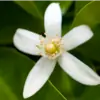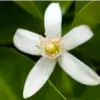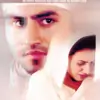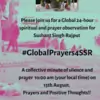
Diwali is a festival that spreads joy around the world. This festival signifies the happiness due to the Victory of Good over Evil. It symbolizes the destruction of negative forces like Anger, Greed, Violence, Fear, Injustice, etc. by spreading the Light of Knowledge, Hope and Happiness.
In the Treta Yuga, Lord Ram along with his wife, Sita and brother Lakshman returned to Ayodhya on Amaavasya, that is, the fifteenth night of the month of Karthik after 14 years of exile. The people of Ayodhya lit diyas outside their homes to celebrate their home coming. In Mahabharata, Pandavas also returned to Hastinapur after 12 years of exile and 1 year of Agyaat Vaas.
On Diwali, people give expression to their happiness by lighting up their houses with earthen lamps or Diyas, wearing new and beautiful clothes, inviting near and dear ones, bursting firecrackers and sharing delicious eateries with them.

Diwali is celebrated for five days with each day having its own significance.
 Dhanvantri Triodasi/Dhan Theras
Dhanvantri Triodasi/Dhan Theras

The first day of Diwali is called as Dhanvantri Triodasi or Dhan Theras. On this day, Lord Dhanvantri appeared from the ocean with Ayurvedas for mankind. People purchase Gold and new clothes and in the evening,they light diyas outside their homes, draw colorful Rangoli and welcome Goddess Lakshmi into their homes. Lord Kuber is also worshipped on this day.
 Naraka Chaturdashi/Choti Diwali
Naraka Chaturdashi/Choti Diwali

The second day is called Naraka Chaturdashi or Choti Diwali. On this day, Lord Krishna killed the demon Narakasur. Goddess Lakshmi and Lord Ram are worshipped and people burst crackers outside their houses for a while.
 Diwali/Deepavali
Diwali/Deepavali

The third day is the actual Diwali when Goddess Lakshmi and Lord Ganesha are worshipped. People light candles and diyas, burst fire crackers and celebrate the festival with joy and enthusiasm.
 Govardhan Pooja/Padwa
Govardhan Pooja/Padwa

On the fourth day, Govardhan Pooja is performed. On this day, Lord Krishna saved the people of Gokul from the wrath of Lord Indra by lifting the Govardhan mountain with his small finger. This day is also called Padwa as Vikram-Samvat started from this day.
 Bhai Dooj
Bhai Dooj

The last day is called Bhai Dooj marking the end of the 5-day festival. This day is dedicated to the strong bond of love between a brother and a sister. The sister applies vermillion on her brother's forehead followed by his aarti and exchange of gifts. The brother promises to protect his sister from untoward situations and the sister prays for her brother's long life.
Thus, each day of the festival brings along happiness, hope and peace in people's lives.



















































9